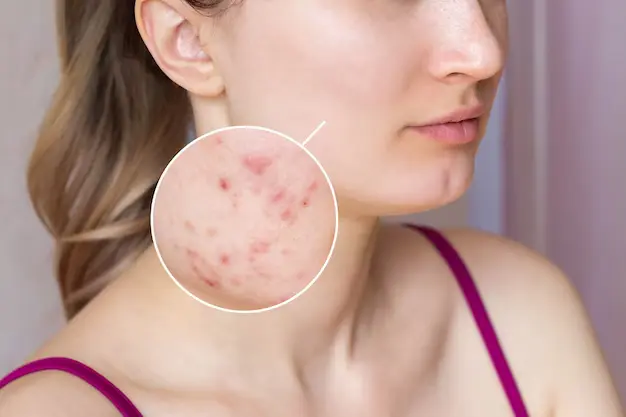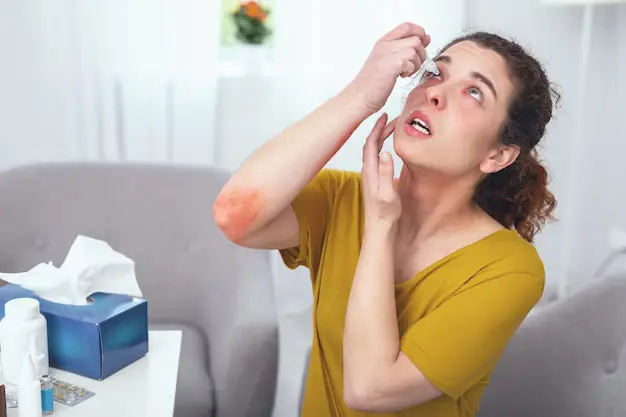- HOME
- ABOUT
- SKIN
- BODY
- FACE
- EQUIPMENT
- POST PROCEDURE
- CONTACT US
- IPAL ACADEMY
- HOME
- ABOUT
- SKIN
- BODY
- FACE
- EQUIPMENT
- POST PROCEDURE
- CONTACT US
- IPAL ACADEMY
Skin Allergies
What are the Symptoms of Skin Allergies
The cause and degree of the response will determine how distinct skin allergies show themselves. Typical symptoms consist of:
- Redness and Inflammation: The afflicted region swells red.
- Itching and Irritation: Constant itching might cause scratching that aggravates the disorder.
- Rashes and Hives: On the skin raised lumps, welts, or patches show themselves.
- Common in eczema, dry, scaly skin causes cracking and peeling of skin.
- Blisters and Oozing Sores: Severe instances could cause fluid-filled blisters.
- Burning feeling: Certain responses provide a burning or painful feeling.
See emergency medical treatment right away if you have severe allergic reactions like facial swelling, trouble breathing, or vertigo.

Most Common Skin Allergies
Environmental allergens, food, skincare products, and insect bites are a few of the many things that could set up skin allergies. The most often occurring causes are listed here
(1) Dermatitis Contact
When the skin directly comes into touch with an allergen or irritant, contact dermatitis results. It results from:
- Cosmetic items (perfumes, skincare, cosmetics)
- Domestic chemicals (disinfectants, cleaning sprays, detergues)
- Metals, including nickel, cobalt, and chromium; jewellery
- Synthetic textiles, latex, rubber—textile dyes (synthetic fabrics)
- Plants (poison ivy, poison oak)
(2) Atopic Dermatitis, or eczema:
A persistent skin disorder, eczema results in red, itchy, and inflammatory skin. It’s often set off by:
- Genetic elements
- Allergens include pollen, cat dander, dust mites.
- Dry, cold weather; certain foods (dairy, nuts, gluten);
- Stress and altered hormones
(3) Urticaria, or hives
On the skin hives show as red, raised, itchy welts. Usually starting with:
- Food allergies (eggs, dairy, nuts, seafood)
- Medications ( aspirin, painkillers, antibiotics)
- stings and bites from insects
- Whether hot or cold exposure
- Pressure or friction on skin

Top Treatments for Skin Allergies
Using modern dermatological techniques and medicinal medicines, our finest skin physicians in Islamabad at IPAL Clinic provide individualised treatments for skin allergies.
(1) Antihistamines
Oral antihistamines such diphenhydramine, loratadine, and cetirizine assist ease allergic responses, itching, and oedema.
(2) Corticosteroids topically
In severe allergic responses, prescription creams and ointments include corticosteroids can lower redness and inflammation.
(3) Emollients and Moistures
Ceramide-based moisturisers among other hydration creams help to reinforce the skin barrier and lower dryness and irritation.
(4) Immunotherapy—allergy shots
allergy injections progressively desensitise the immune system to certain allergens in cases of persistent skin allergies.
(5) Laser Corrective Actions
Q Switch laser in Islamabad and Fotona laser can enhance skin health by lowering inflammation and encouraging skin regeneration in cases of ongoing allergic responses.
(6) Microneedles and Skin Resurfacing
Microneedling and skin resurfacing in Islamabad may assist individuals with scars connected to allergies get smooth and healthy skin.
Why Choose IPAL Clinic for treatment of skin allergies?
Leading cosmetic and dermatological centre in Islamabad, IPAL centre provides modern treatments for skin allergies, eczema, acne, and other major skin disorders.
- Best cosmetologist in Islamabad; our skilled dermatologists provide tailored treatment regimens for every skin type.
- From Q Switch laser, microneedling, Sylfirm to top filler and botox in Islamabad, we have Advanced Skin Treatments.
- Patient-Centered Approach: Our main goals are to provide any skin problem safe, quick, long-lasting treatment.
Book a consultation with IPAL Clinic right now for professional diagnosis and tailored treatment if you suffer from skin allergies or other major skin disorders.

